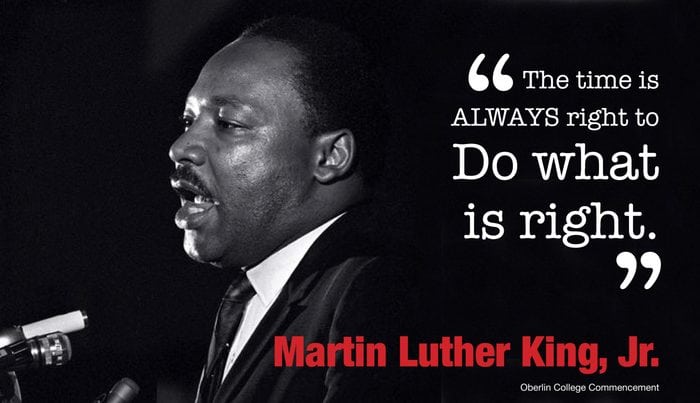This is a guest blog post by Nebraska Appleseed Immigrants & Communities Program Intern, Nile Debebe.
Honest dialogue about racism and its impact is a vital step in building inclusive communities and until or unless we are intentional, we will not achieve communities where everyone feels like they belong. On this Martin Luther King Day, intern Nile Debebe shares his personal story that we might continue our learning. – Christa Yoakum, Senior Welcoming Coordinator.
As a child who attended Eastridge Elementary School in Lincoln, Nebraska, I found myself for the first time going through an identity crisis.
 Though I was too young to understand the systematic racism that existed in our country, I understood that ‘white’ was good, and ‘black’ was bad. I hated the texture and color of my hair, my own name, my ambiguous skin color, all for the fact that I believed the physical characteristics of white kids were better than my own. I wanted to dye my hair blond, change my name to Luke, and lighten my own skin. I wanted to be like the popular white kids more than anything in my class; and I identified my own race as troublemakers, criminals, and generally poor people. I realized that these beliefs were being instilled in me as a product of my environment, and it wasn’t until years later that I realized how much race had a part to play in my educational development.
Though I was too young to understand the systematic racism that existed in our country, I understood that ‘white’ was good, and ‘black’ was bad. I hated the texture and color of my hair, my own name, my ambiguous skin color, all for the fact that I believed the physical characteristics of white kids were better than my own. I wanted to dye my hair blond, change my name to Luke, and lighten my own skin. I wanted to be like the popular white kids more than anything in my class; and I identified my own race as troublemakers, criminals, and generally poor people. I realized that these beliefs were being instilled in me as a product of my environment, and it wasn’t until years later that I realized how much race had a part to play in my educational development.
This is how I learned that tackling racial problems in America starts with education, starts with empathy, and starts with an ability to understand problems that may not directly impact yourself.
While appreciating the differences that make us unique, we should pay close attention to the interpretation of society that we pass on to our children; specifically, those that demean and devalue the characteristics of Black and Brown people across the world. Racial trauma is unlike any other type of trauma, it is something that keeps you awake at night: Wondering about the life that you will give to your own children, and the thought that at any time you all could be judged, rejected, arrested, or even killed, for the color of your own skin.
As somebody who comes from a biracial background, I realize that it starts with all of us when it comes to dismantling the racial inequities that exist and are deeply ingrained within our nation. Every one of us has a part to play in pressuring local lawmakers to dismantle policies that create racial disparities, such as criminal justice reform, education, immigration, healthcare, and social services at large.
To honor Dr. Martin Luther King Jr.’s work and legacy, we are encouraged to make it a day of service, volunteering in our local communities. It’s up to us. On this MLK Day and every day you can serve, learn more, and do more.

Here’s how to get started:
January 17 at 9:30 am CT:
- The Annual Rev. Dr. Martin Luther King, Jr. Youth Rally has gone virtual and you can participate from wherever you are.
January 18 is the sixth annual National Day of Racial Healing and there are several events in Nebraska and across the nation to participate in.
- At 1:30 – 3:00 pm CT: Interest Convergence: What the 2020 COVID/BLM Connection Teaches Us about Racial Healing in 2022.
This session explores how to recognize and leverage interest convergence for longer-lasting change through awareness, healing, and advocacy hosted by the Omaha Community Council for Racial Justice and Reconciliation.
- At 7:00 pm CT: National Day Of Racial Healing With United By Culture Media.
Join Chris Cox and Gladys Godinez from United By Culture Media in a conversation on racial healing live streaming from Lexington, NE.
- Watch and share this message by Dr. Gail Christopher. Dr. Christopher, one of the nation’s leading advocates for racial healing, believes the National Day of Racial Healing is an important component in dismantling the belief in a hierarchy of human value that fuels racism.
January 19 at 5:30 pm CT: ‘Real Talk on Racism’ virtual author talk.
All are welcome to join Nebraska Authors Amber Ruffin and Lacey Lamar to discuss the book You’ll Never Believe What Happened to Lacey: Crazy Stories about Racism. This is part of a statewide book club and discussion series

